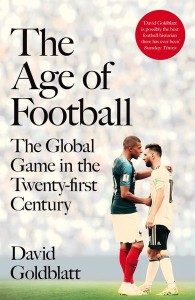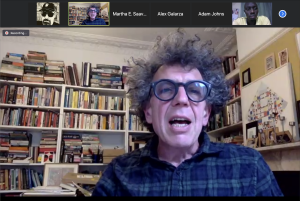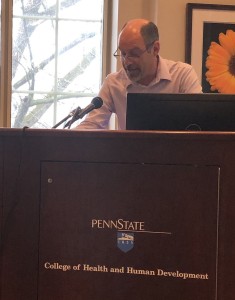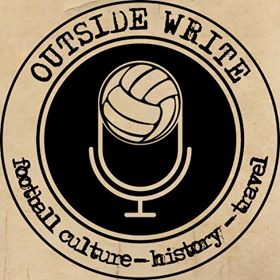[Note: This review essay is cross-posted from idrottsforum.org.]
In an extraordinary stroke of good luck, I recently had the opportunity to read Football and Colonialism by Nuno Domingos and Following The Ball by Todd Cleveland. These well-researched scholarly histories of Africans in Portugal’s soccer empire beautifully complement each other.
 Football and Colonialism reconstructs the culture of the game in Lourenço Marques (Maputo today). A carefully edited English translation of a previously published Portuguese edition, it tethers sport to urban development and everyday life in a racially segregated city. Government records and press sources provide the bulk of the primary evidence, with oral interviews enriching the chronologically organized narrative. The book’s main objective is to demonstrate that football performances and bodily practices—from techniques and tactics to language use and fan culture—came to form an integral part of the larger colonial history of Mozambique.
Football and Colonialism reconstructs the culture of the game in Lourenço Marques (Maputo today). A carefully edited English translation of a previously published Portuguese edition, it tethers sport to urban development and everyday life in a racially segregated city. Government records and press sources provide the bulk of the primary evidence, with oral interviews enriching the chronologically organized narrative. The book’s main objective is to demonstrate that football performances and bodily practices—from techniques and tactics to language use and fan culture—came to form an integral part of the larger colonial history of Mozambique.
Football and Colonialism opens by situating itself in a growing literature on sport and leisure in African history and then outlines the book’s main themes, methodology, and structure. Chapter 2 examines the rise of organized football in the white residential areas of Lourenço Marques, where it aimed to strengthen physical education programs and reinforce white minority rule. Chapter 3 widens its ethnographic lens to incorporate black neighborhoods on the periphery of the expanding city. By the 1940s, the chapter shows, local African men had transformed football into a popular spectacle that shaped, and was shaped by, new forms of sociability and identitarianism. Chapter 4 explores a vernacular football culture defined by trickster dribblers (malabaristas), vigorous tackles (beketela), and hard-core (“diseased”) fans. Moves such as psêtu (making fun of an opponent after dribbling past him) andpyonyo (repeatedly dribbling around the same defender) captured the importance of “malice” in navigating between the Scylla of colonial racism and the Charybdis of material poverty (pp. 116, 119). Chapter 5 opens a parenthesis on the occult world of the vovô (religious specialist)—a feature of the African game that blends “traditional” agrarian beliefs and practices with “modern” urban ways and worldviews.
The game’s changing tactics and styles of play are the subject of chapter 6. This brilliant chapter explains how a range of British, Brazilian, Portuguese, and South African influences produced a cosmopolitan brand of Mozambican football inextricably linked to colonial racial hierarchies. As a result, by the late 1950s, the white “downtown” game’s modernity, speed, and efficiency stood in stark contrast to the African suburban game’s enduring preference for risk taking tactics and crowd-pleasing dribbling moves. Chapter 7 discusses the desegregation of the white league (AFLM) in the 1960s and describes how major Portuguese sides developed “feeder” clubs in Lourenço Marques to recruit exciting African talents, including Eusébio—the first African to win the European Player of the Year. A short concluding chapter underscores the contradiction of football in colonial Mozambique as a social practice that reinforced white minority rule while simultaneously creating a space in which the black majority could express aspirations for belonging, equality, and freedom.
 Following the Ball builds on these valuable insights to explore the experiences in Portugal of migrant footballers originally from Mozambique, Angola, Guinea Bissau, Cape Verde, and São Tomé and Príncipe. Using archival and oral sources, the book argues that Africans abroad were not passive victims of colonial capitalist machinations, but instead found ways to negotiate a better life for themselves on and off the pitch. The first chapter succinctly describes Portuguese rule in Africa and outlines the development of football among white settlers. The next chapter draws on Domingos’s pioneering work to examine the segregated nature of the inter-war soccer in the colonies and then turns to the reforms of the 1950s that brought more mestiços (biracial) and, for the first time, darker-skinned Africans into the ranks of white clubs (much to the detriment of African leagues).
Following the Ball builds on these valuable insights to explore the experiences in Portugal of migrant footballers originally from Mozambique, Angola, Guinea Bissau, Cape Verde, and São Tomé and Príncipe. Using archival and oral sources, the book argues that Africans abroad were not passive victims of colonial capitalist machinations, but instead found ways to negotiate a better life for themselves on and off the pitch. The first chapter succinctly describes Portuguese rule in Africa and outlines the development of football among white settlers. The next chapter draws on Domingos’s pioneering work to examine the segregated nature of the inter-war soccer in the colonies and then turns to the reforms of the 1950s that brought more mestiços (biracial) and, for the first time, darker-skinned Africans into the ranks of white clubs (much to the detriment of African leagues).
Chapter 3 shifts the narrative into high gear. Through deft use of evocative interviews, it brings out the connections between Africa and Europe. Meticulous attention is paid to both the “push” and “pull” factors that triggered the migration of white, mestiço, and African footballers to clubs in Lisbon and elsewhere in Portugal. Chapter 4 explores the countless difficulties faced by immigrant players. “We suffered a lot due to the weather and food,” Hilário recalled (p. 121) an example of how saudade (melancholy and longing for home) affected the young men. The much more competitive quality of football challenged them too, as did the prohibition on signing for clubs outside Portugal and the Salazar dictatorship’s repression.
Chapter 5 focuses on the 1960s and early 1970s and the ways in which African migrants coped with a number of sporting, social, and political obstacles. “The social bonds that African footballers cultivated and deepened,” Cleveland notes, “served to mitigate their saudades, while also lifting their spirits and helping them adjust to metropolitan life” (p. 154). In the context of rising popular protest in Portugal and of militant resistance in the colonies, this acutely insightful chapter brings into sharp relief the role of rebellious students and of Académica de Coimbra FC—“the epicenter of political radicalism” (p. 196). In 1969, for example, Mario Wilson and other Africans joined their Académica teammates in wearing black armbands in a Cup semifinal against Sporting Lisbon to show solidarity with student demonstrations against the regime. While the story ends with independence in 1975, the epilogue makes reference to Eder, a striker born in Guinea Bissau, whose game-winning goal for Portugal in the 2016 Euro final against France (in Paris in extra time) reminds us that “the myriad contributions made by these African players have, indeed, rendered Portugal a very rich nation” (p. 216).
* * *
Following the Ball and Football and Colonialism make important contributions to the fields of Sport Studies and African history. As legitimate academic studies in and of themselves, they convincingly demonstrate that the histories of Mozambican football and of African migrants in Portugal have value and deserve to be told in their own right. Both books also put multiple African voices and perspectives center stage while delineating the local and international implications of Lusophone African football’s history. In doing so, Following the Ball and Football and Colonialism help to narrow the linguistic and geo-institutional barriers that tend to separate Anglophone, Francophone, and Lusophone scholarship on Africa.
As can be expected, both books have some shortcomings. For example, Domingos’s prose suffers from too many passive verbs and painfully long sentences, and chapters 2 and 3 could have been shorter. More substantively, Football and Colonialism is short on analysis of masculinities and femininities, generational relations, and inner workings of African clubs and leagues. Cleveland’s work, on the other hand, relies so heavily on biographical portraits that it sometimes seems to articulate a theory based on anecdotes. Following the Ball also tends to gloss over cases of less successful African migrants, and treads lightly on the role of fans, club owners, sports reporters, and sponsors in shaping the history of Africans in the Portuguese game.
Despite these limitations, Football and Colonialism and Following the Ball succeed in accomplishing their stated objectives. Individually and together, these impressive books greatly deepen our knowledge and understanding of football and society in Africa and Europe. I highly recommend them to specialists and general readers interested in sport, African Studies, and globalization.
 With Euros 2020 postponed until 2021 due to the COVID-19 pandemic, the Football Scholars Forum organized a five-part summer series with academic, journalist, and broadcaster David Goldblatt on his new book, The Age of Football: The Global Game in the Twenty-first Century [UK edition here / US edition here].
With Euros 2020 postponed until 2021 due to the COVID-19 pandemic, the Football Scholars Forum organized a five-part summer series with academic, journalist, and broadcaster David Goldblatt on his new book, The Age of Football: The Global Game in the Twenty-first Century [UK edition here / US edition here]. “It’s the hardest book I’ve ever written,” Goldblatt revealed. “A combination of Brexit and COVID kind of ate its public reception alive. That was quite hard to process,” he said. “This [series] has been a fabulous corrective to that. It means a lot to have you read it, to know that it held your attention, entertained you and maybe enlightened you along the way.”
“It’s the hardest book I’ve ever written,” Goldblatt revealed. “A combination of Brexit and COVID kind of ate its public reception alive. That was quite hard to process,” he said. “This [series] has been a fabulous corrective to that. It means a lot to have you read it, to know that it held your attention, entertained you and maybe enlightened you along the way.”




